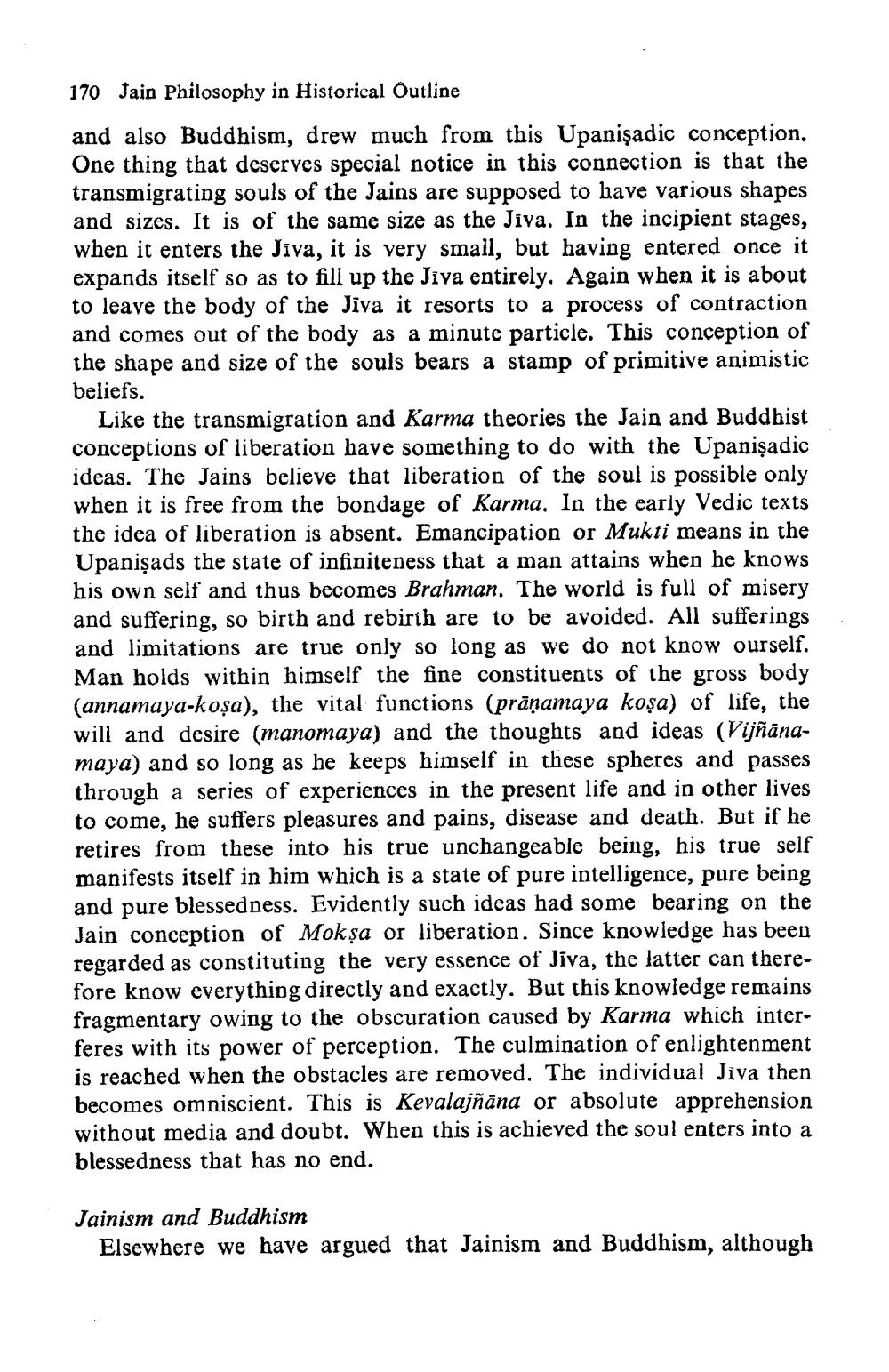________________
170 Jain Philosophy in Historical Outline and also Buddhism, drew much from this Upanişadic conception. One thing that deserves special notice in this connection is that the transmigrating souls of the Jains are supposed to have various shapes and sizes. It is of the same size as the Jiva. In the incipient stages, when it enters the Jiva, it is very small, but having entered once it expands itself so as to fill up the Jiva entirely. Again when it is about to leave the body of the Jiva it resorts to a process of contraction and comes out of the body as a minute particle. This conception of the shape and size of the souls bears a stamp of primitive animistic beliefs.
Like the transmigration and Karma theories the Jain and Buddhist conceptions of liberation have something to do with the Upanişadic ideas. The Jains believe that liberation of the soul is possible only when it is free from the bondage of Karma. In the early Vedic texts the idea of liberation is absent. Emancipation or Mukti means in the Upanişads the state of infiniteness that a man attains when he knows his own self and thus becomes Brahman. The world is full of misery and suffering, so birth and rebirth are to be avoided. All sufferings and limitations are true only so long as we do not know ourself. Man holds within himself the fine constituents of the gross body (annamaya-koşa), the vital functions (prānamaya koşa) of life, the will and desire (manomaya) and the thoughts and ideas (Vijñānamaya) and so long as he keeps himself in these spheres and passes through a series of experiences in the present life and in other lives to come, he suffers pleasures and pains, disease and death. But if he retires from these into his true unchangeable being, his true self manifests itself in him which is a state of pure intelligence, pure being and pure blessedness. Evidently such ideas had some bearing on the Jain conception of Mokșa or liberation. Since knowledge has been regarded as constituting the very essence of Jiva, the latter can therefore know everything directly and exactly. But this knowledge remains fragmentary owing to the obscuration caused by Karma which interferes with its power of perception. The culmination of enlightenment is reached when the obstacles are removed. The individual Jiva then becomes omniscient. This is Kevalajñāna or absolute apprehension without media and doubt. When this is achieved the soul enters into a blessedness that has no end.
Jainism and Buddhism
Elsewhere we have argued that Jainism and Buddhism, although




